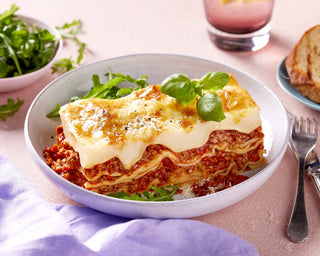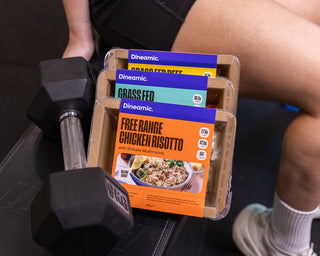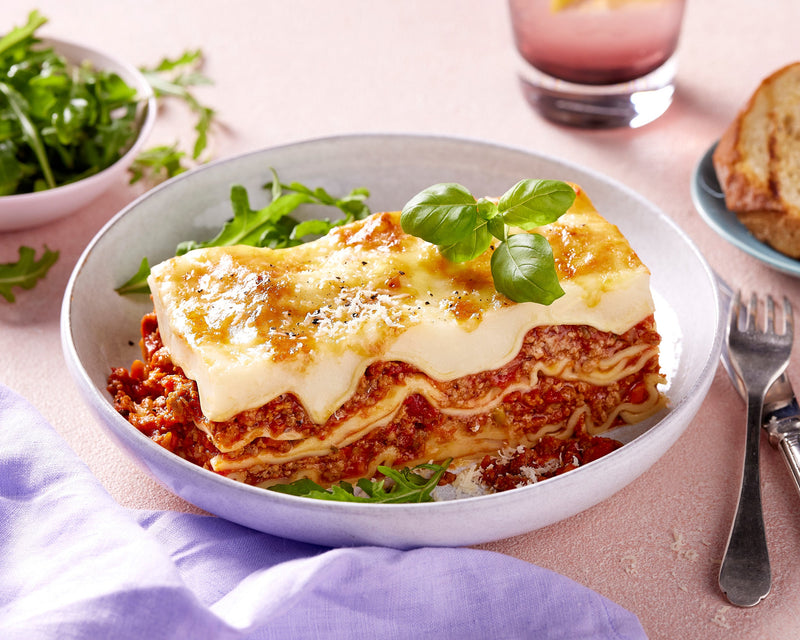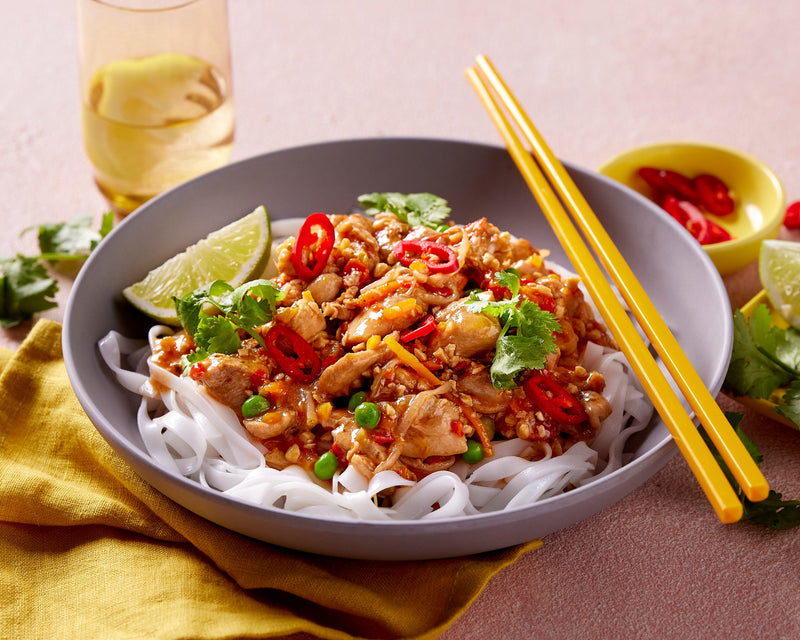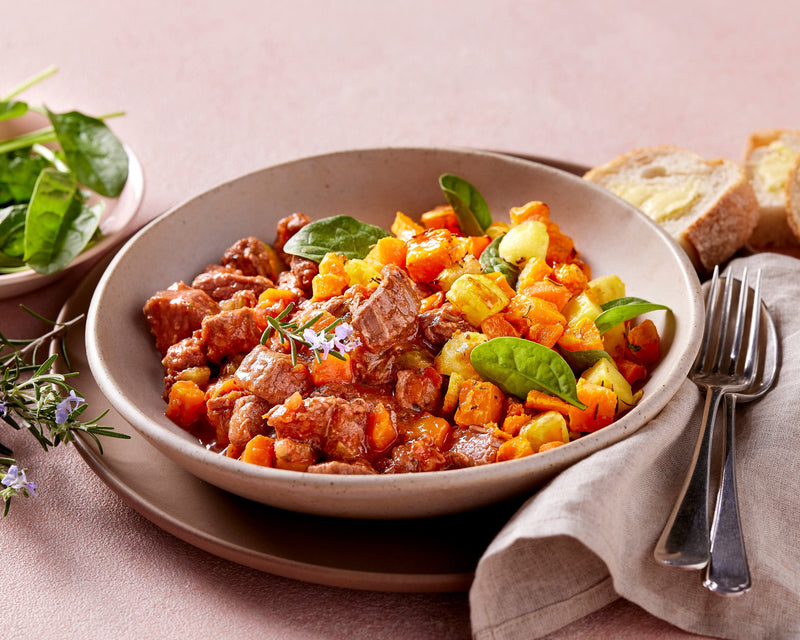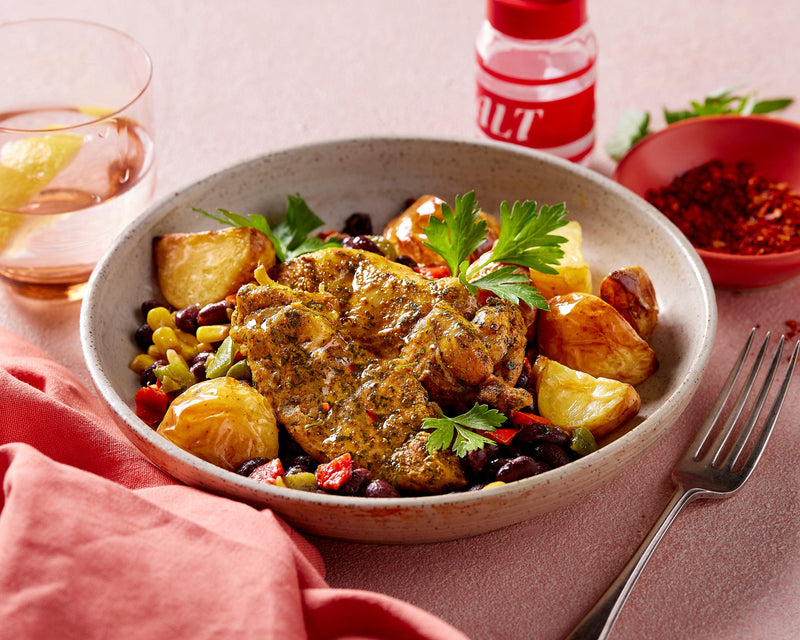
Whether you’ve been loving the vegan lifestyle, or this is your first time giving it a crack, you’ve come to the right place. Contrary to popular belief, following a plant-based diet doesn’t have to be tricky - you just need to factor in a little time for creativity, planning and education.
Why? Well, you need to ensure you’re getting all the key nutrients you need to function best, including protein, iron, zinc, fatty acids, iodine, vitamin D and B-12. For those worried that a vegan diet won’t suit their lifestyle, you’d be amazed by how available vegan options have become - and how easy it can be to get all the vitamins and minerals you need to power through the day!
Research shows that maintaining a vegan diet has a number of benefits, including better heart health, lower cancer risk, weight loss and lower risk of type 2 diabetes. Terms and conditions apply though, because a poorly planned vegan diet can harm your health if you miss out on the key nutrients you need to stay healthy!
Fortunately, we’ve prepared this guide to provide you with an easy, tasty, variety-filled vegan meal plan and help you avoid some of the common mistakes those trying the diet make!
HOW TO STAY HEALTHY ON A VEGAN DIET
To be a healthy vegan, you’ll need to maintain a varied and balanced diet. Here are some general rules you should consider to ensure you’re getting enough minerals and nutrients day-to-day:
- Eat five portions of fruit and vegetables a day (remember to mix up your choices!)
- Incorporate beans, pulses and other proteins (like tofu and tempeh) into your diet
- Choose unsaturated oils and spreads
- Have your main meals with starchy carbohydrates, including potatoes, bread, rice and pasta (whole grain is best)
- Include dairy alternatives (fortified is best)
- Ensure you’re well hydrated
It’s worthwhile having a conversation with your GP when following any diet. A routine blood test can be useful to identify if you’re lacking any nutrients that you need to function best. When following a plant-based diet pay special attention to:
Vitamin B12
Vitamin B12 plays an important role in the reproduction of red blood cells, nerves and DNA. Plants don’t make B12, and it’s most commonly derived from meat, eggs, poultry and other dairy products.
Some foods are fortified with B12 such as cereals and non-dairy milk. A deficiency in B12 may contribute to depression, memory loss and more.
Omega-3 fats
Omega-3 oils may assist in lowering blood pressure, reducing the risk of heart attack or stroke and lowering inflammation. It’s possible to get omega-3 from a variety of nuts and seeds, such as flax seeds, chia seeds and walnuts.
Fish is an excellent source of omega-3, but vegans can opt for a supplement with an omega-3 made from algae instead.
Vitamin D
Vitamin D impacts your immune function, mood, memory and muscle recovery. It’s difficult to get enough vitamin D from your diet alone, and many foods will be fortified to include it, including some plant-based milks, cereals and margarines.
Iron
Iron plays an important role in growth and development. Include a range of dark leafy vegetables, legumes, nuts, seeds, whole grains and tofu in your diet. These iron-rich foods will help boost your intake, but it’s also important to include a range of foods that are high in vitamin C (such as berries, citrus, tomatoes and broccoli) to help your body absorb the iron.
Calcium
The body needs calcium to maintain strong bones. You can boost your intake by including calcium-fortified soy and almond milks, hard tofu, almonds and leafy green vegetables such as kale in your diet.
SHOPPING FOR A VEGAN DIET
When you first begin following a vegan diet, be prepared for your weekly shop to take a little bit longer. If you’re buying packaged products, you’ll need to read a lot of labels. You’re also going to realise how many things contain animal products. It’ll probably shock you!
But have no fear, Dineamic is here. Write up your shopping list based on these go-to vegan staples and you’ll be sorted when it comes to making a tonne of delicious, nutritious vegan meals.
Fruit
Apples, avocados, bananas, blueberries, grapes, grapefruit, jackfruit, kiwi, lemon, lime, mango, oranges, peaches, pears, pineapple, strawberries, watermelon.
Vegetables
Asparagus, broccoli, brussel sprouts, cabbage, capsicum, carrots, cauliflower, celery, cucumber, eggplant, mushrooms, garlic, kale, onions, potatoes, salad mixes, spinach, tomatoes, zucchini.
Grains
Barley, brown rice, buckwheat, farro, oats, quinoa, couscous, whole wheat pasta.
Beans and legumes
Black beans, butter beans, chickpeas, edamame, kidney beans, lentils, tempeh, tofu.
Nuts and seeds
Almonds, almond flour, brazil nuts, chases, chia, flaxseeds, hazelnuts, hemp seeds, macadamia nuts, pecans, pine nuts, pumpkin seeds, sesame seeds, sunflower seeds, tahini, walnuts.
Spices and herbs
Basil, chives, coriander, cinnamon, chili powder, cumin, dill, garlic, ginger, nutmeg, oregano, paprika, parsley, rosemary, spring onion, thyme, turmeric.
Milk substitutes
Almond milk, cashew milk, coconut milk, hazelnut milk, hemp milk, macadamia milk, oat milk, rice milk, soy milk.
Oils and fats
Avocado oil, canola oil, coconut oil, extra virgin olive oil, rice bran oil, sesame oil.
Sweeteners
Agave syrup, coconut sugar, dates, maple syrup, molasses, rice syrup.
Vegan treats
Of course, making your own or purchasing high-quality vegan treats is best. However, if you find yourself purchasing a few packaged goods at the supermarket (everything in moderation) then here are some items that might surprise you! Always remember to check labels. You can also find a list of ‘accidentally vegan’ items here.
Popcorn, corn chips, potato chips, sorbet, Oreos and some biscuits, dairy free dark chocolate
COMMON PITFALLS OF A VEGAN DIET
Although a balanced vegan diet is beneficial, like all diets if it’s done without some careful planning it can potentially harm your health. Here are a few things you should consider when starting or maintaining a vegan diet.
Transition period
As with all things in life, change takes time. If our bodies are accustomed to a certain diet that we’ve been consuming for decades, then going cold-turkey isn’t the best idea. Not only is it more likely you’ll struggle to maintain the diet, you may feel hungry, irritable and fatigued.
If you’re serious about becoming vegan for the long run, start incorporating more vegetables and plant-based foods into your diet over the course of 2 to 3 weeks. This way, you should find the transition more manageable.
Be careful of foods high in fat, salt and sugar
So you thought following a vegan diet would guarantee you weight loss or better weight management? Think again. You need to be careful when switching to a vegan diet, as many of the common substitutes for meat and dairy products are high in fat, salt and sugar.
Switching to a plant-based diet should ideally mean you focus on consuming whole foods. But we’re all human, and sometimes picking up processed foods and snacks just makes life a little easier. Read labels and be very aware of the amount of fat, salt and sugar in packaged products. And don’t always take marketing slogans at face value!
Now you’re across all the shopping and nutritional tips for maintaining a healthy vegan diet, feeling confident? Try our meal plan below!
DINEAMIC’S 7-DAY VEGAN MEAL PLAN
DAY 1
Breakfast
Smashed avo on toast (½ avocado, 2 slices rye bread, 6 cherry tomatoes, 1 pinch chilli flakes, squeeze of lemon juice, dash of olive oil, pinch of salt)
Snack
1 Dineamic Coffee & Walnut Power Ball (Healthy snack with a coffee hit, dates, walnut and almonds)
Lunch
Salad with edamame and beetroot (2 cups mixed greens, 1 cup shelled edamame, ½ beetroot, 1 tbsp coriander, 2 tbsp olive oil, 2 tbsp apple cider vinegar)
Dinner
Dineamic Pumpkin & Kale Risotto (Nutritious rice dish packed with pumpkin, kale, capsicum, herbs and spices)
DAY 2
Breakfast
Green smoothie (blend 2 cups spinach, half a banana, 1 cup fruit of your choice & 1.5 cups of oat, almond or soy milk)
Snack
1 banana and approx. 30g of raw, unsalted cashew nuts
Lunch
Dineamic Sweet Potato & Coconut Curry (Creamy curry full of chunky sweet potato, chickpeas and spinach)
Dinner
Veggie pizza and roquette (1 tortilla or flatbread, top with tomato paste, vegan cheese and some toppings of your choosing e.g. mushroom, capsicum and olives. When cooked, top with a handful of fresh roquette and a drizzle of olive oil)
DAY 3
Breakfast
Oats with raspberries (½ cup oats, 1 cup water or oat, almond or soy milk, ½ cup raspberries)
Snack
1 cup of blueberries and approx. 30 g of raw, unsalted almonds
Lunch
Dineamic Rustic Tomato & Ancient Grain Soup (Rich Mediterranean flavour with the goodness of ancient grains and seeds like amaranth, millet and chia)
Dinner
Tofu stir fry (85g tofu, ½ cup brown rice, 1 cup broccoli or Asian greens, 1 cup capsicum, 1 cup mushroom, 1 cup onion, low-salt soy sauce)
DAY 4
Breakfast
Vegan pancakes (1 cup flour, ½ tsp salt, 1 tsp cinnamon, 1 tbsp baking powder, 1 cup plant-based milk, 2 tbsp coconut oil, 1 tbsp agave syrup)
Snack
1 cup of chopped carrots and sugar snap peas with 2 tbsp of hummus for dipping
Lunch
Mediterranean Bowl (½ cup quinoa, 1 small cucumber, ½ cup cherry tomatoes, small handful of parsley, 8 kalamata olives, ⅓ cup chickpeas, 2 tbsp hummus)
Dinner
Dineamic Vegetable Taco Hash (Packed with colourful veggies like corn, capsicum, beans and spinach and is paired with brilliant brown rice)
DAY 5
Breakfast
Berry smoothie (blend 1 cup frozen strawberries or mixed berries, half a banana, 1 cup of oat, almond or soy milk)
Snack
1 apple sliced with 2 tbsp of almond butter
Lunch
Dineamic Sweet Potato, Coconut & Turmeric Soup (Exotic, full of flavour soup with sweet potato, pumpkin and carrot to help you power through the day)
Dinner
Veggie burger (1 veggie pattie, 1 whole wheat bun, small handful lettuce or spinach, 2 slices of tomato, ¼ avocado, mustard)
DAY 6
Breakfast
Tofu scramble (150g tofu, ¼ brown onion, 1 garlic clove, pinch chilli flakes, 5 sundried tomato, 5 green olives, 2 tbsp olive oil, 1/ tsp turmeric)
Snack
2 rice cakes with approx. 2 tbsp of peanut butter
Lunch
Veggie sandwich (2 slices whole grain bread topped with 2 tbsp hummus, small handful of spinach, half a small cucumber, 1 small tomato, and a few kalamata olives)
Dinner
Dineamic Middle Eastern Vegetable Tagine with Turmeric Couscous (Aromatic dish with capsicum, zucchini, sweet potato, eggplant, cauliflower and pumpkin)
DAY 7
Breakfast
Oats with blueberries (½ cup oats, 1 cup water or oat, almond or soy milk, ½ cup blueberries)
Snack
50g of avocado with 3 wholewheat crackers
Lunch
Tomato and basil bruschetta (1 tomato, small handful of basil, ¼ red onion, 1 tbsp olive oil, 1 small garlic clove, few slices of baguette or ciabatta)
Dinner
Dineamic Lentil & Mushroom Bolognese with Spaghetti (Nutrient-rich sauce made from eggplant, tomato and mushroom, along with brown lentils for a protein hit)
TOO BUSY TO COOK?
We hope our vegan meal plan inspires you to incorporate more plant-based meals into your life. If you find yourself with less time than you’d like to prepare something at home, then consider substituting some of our suggestions for one of our healthy vegan Dineamic meals.
Shop the full range of vegan Dineamic meals here.


